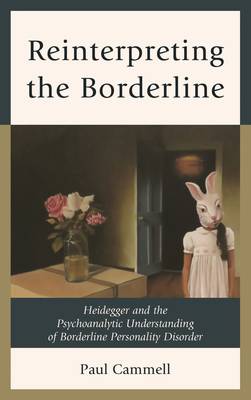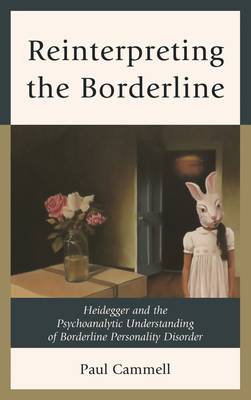
Bedankt voor het vertrouwen het afgelopen jaar! Om jou te bedanken bieden we GRATIS verzending (in België) aan op alles gedurende de hele maand januari.
- Afhalen na 1 uur in een winkel met voorraad
- In januari gratis thuislevering in België
- Ruim aanbod met 7 miljoen producten
Bedankt voor het vertrouwen het afgelopen jaar! Om jou te bedanken bieden we GRATIS verzending (in België) aan op alles gedurende de hele maand januari.
- Afhalen na 1 uur in een winkel met voorraad
- In januari gratis thuislevering in België
- Ruim aanbod met 7 miljoen producten
Zoeken
Reinterpreting the Borderline
Heidegger and the Psychoanalytic Understanding of Borderline Personality Disorder
Paul Cammell
€ 155,95
+ 311 punten
Omschrijving
Reinterpreting the Borderline is a unique, timely, and comprehensive analysis of Heidegger's philosophy and its relevance to the clinical fields of psychiatry, psychotherapy, and psychoanalysis. By applying these philosophical ideas to developmental models and clinical treatments of borderline personality disorder, Cammell explores the fundamentally relational, embodied, affective, temporal, and technical aspects of existence that become problematized in the experience of "the borderline"--both for the suffering individual and the concerned clinician. Reinterpreting the Borderline provides a rich and complex study toward simultaneously overcoming the divide between theory and practice, philosophy and psychotherapy, and finally the borderline between suffering individuals and their concerned clinicians.
Specificaties
Betrokkenen
- Auteur(s):
- Uitgeverij:
Inhoud
- Aantal bladzijden:
- 286
- Taal:
- Engels
- Reeks:
Eigenschappen
- Productcode (EAN):
- 9781442252844
- Verschijningsdatum:
- 30/08/2016
- Uitvoering:
- Hardcover
- Formaat:
- Genaaid
- Afmetingen:
- 160 mm x 234 mm
- Gewicht:
- 544 g

Alleen bij Standaard Boekhandel
+ 311 punten op je klantenkaart van Standaard Boekhandel
Beoordelingen
We publiceren alleen reviews die voldoen aan de voorwaarden voor reviews. Bekijk onze voorwaarden voor reviews.









